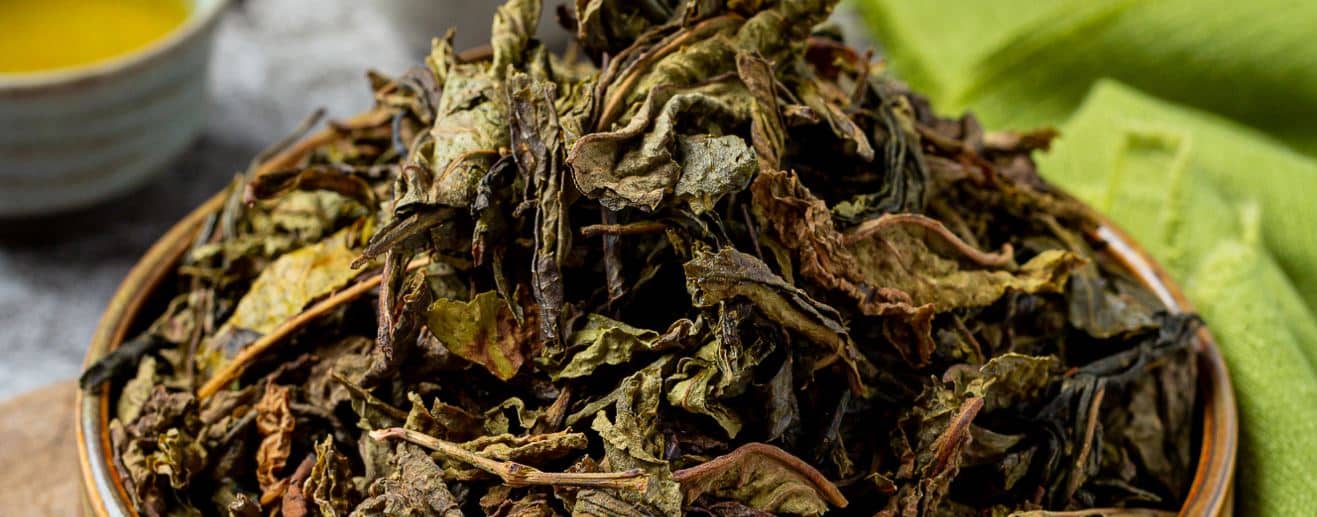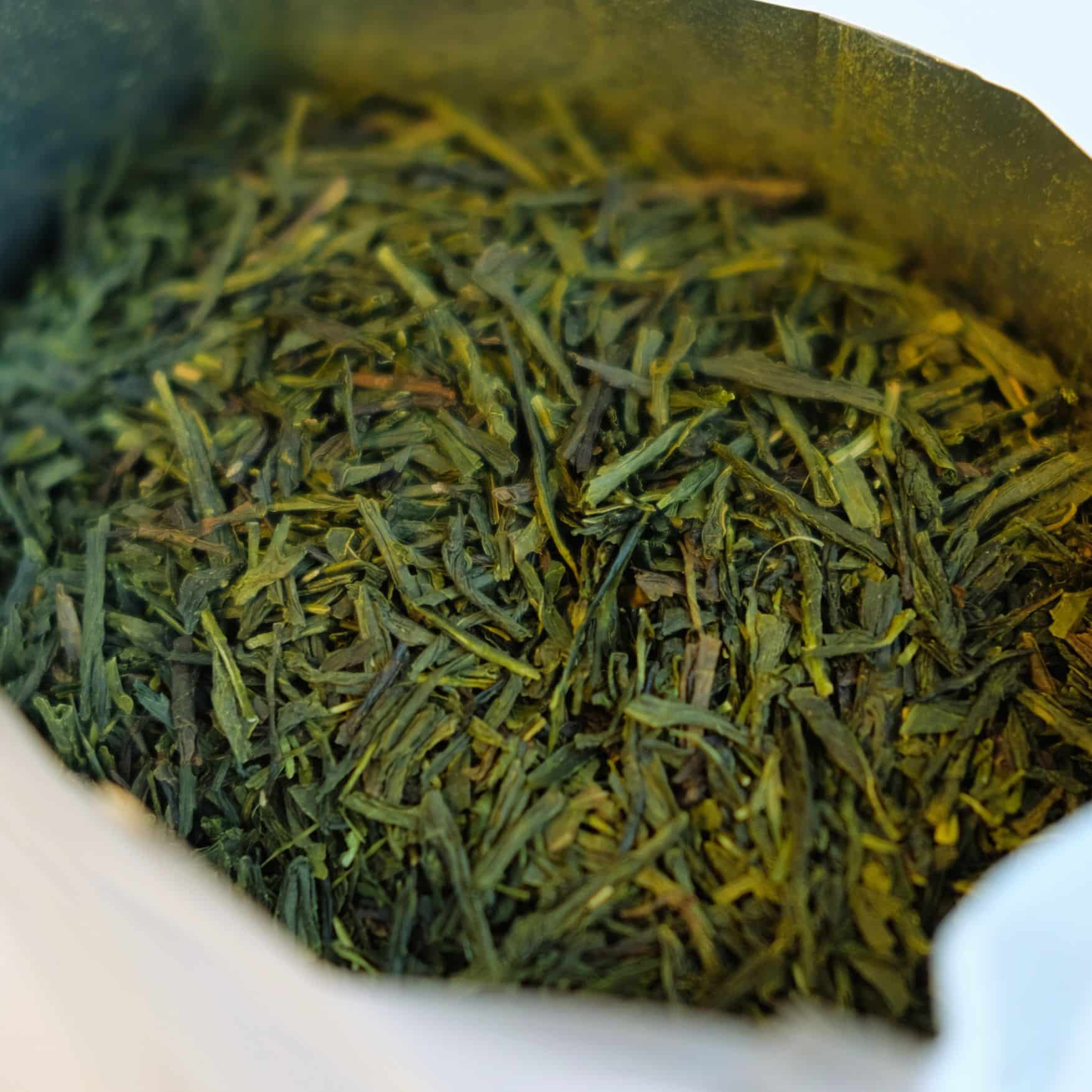Today, I’d like to introduce GABA tea. GABA tea isn’t a type of tea in itself, like green or black tea, but the result of a special production process that results in the tea having a high GABA content. GABA tea can be made from any type of tea, although GABA oolong and green GABA are the most common. In this blog, we delve into what exactly GABA is, the production process, and the potential health benefits.
What is GABA
GABA is a neurotransmitter produced by your body. Standing for gamma-aminobutyric acid, it’s a naturally occurring amino acid that acts as a neurotransmitter in your brain. Neurotransmitters facilitate the movement of nerve signals between neurons. GABA is considered an inhibitory neurotransmitter because it blocks, or slows down, certain brain signals and decreases nervous system activity. When GABA binds to a protein in your brain known as a GABA receptor, it produces a calming effect. This can help with feelings of anxiety, stress, and fear.
Due to these properties, GABA has become a popular supplement in recent years, partly because it’s not widely available in many food sources. The only foods that contain GABA are fermented ones, such as kimchi, miso, and tempeh.
What is GABA tea
GABA tea, or Gabacha, is tea processed in a specific way to increase the GABA content of the tea leaf. All tea contains GABA, approximately 6 to 10 milligrams per 100 grams. To be labeled as GABA tea, the leaves must contain at least 150mg of GABA per 100 grams. The GABA content in GABA tea is thus about 25 times higher than in normal tea. Farmers achieve this by placing the leaves in a nitrogen-rich (air-free) environment during the oxidation phase. This process, taking several hours, naturally increases the GABA content in the tea leaves.
This tea was first introduced and developed in Taiwan following Japanese research into the GABA molecule in the 1980s. Naturally present in tea, GABA is oxidized into glutamate during tea processing. The Japanese discovered how to preserve the GABA content by processing in nitrogen instead of oxygen. As a result, the GABA remains in an unoxidized state due to the lack of oxygen. This special vacuum processing method yields a tea with a very high GABA content and an interesting, specific ‘GABA’ flavor.
The taste of GABA tea is hard to describe if you’ve never tried it. Some describe GABA as having a pumpkin-like note. For instance, GABA oolong is often more warming, slightly sourer, and a bit fruitier than average oolong tea, making it a comforting ‘hug in a mug.
Production of GABA tea
GABA tea can be any tea type, but green GABA and GABA oolong are the most common. Today, GABA tea is mainly produced in Japan and Taiwan, with Taiwan specializing in GABA oolong and Japan in green GABA. China, Thailand, and Korea also produce GABA tea.
There isn’t one general production process for GABA tea. The process varies depending on the tea type, and each tea-producing country has its method. Individual tea producers often add their twist to the process. The key difference in GABA tea production is that it occurs in a nitrogen-rich environment without air, preventing oxidation and resulting in high GABA levels.
Does GABA cross the blood-brain barrier?
It’s claimed that drinking GABA tea can raise GABA levels in the brain and induce relaxation. For this to happen, GABA from the tea must be absorbed from the stomach into the bloodstream and then cross the blood-brain barrier to reach the brain.
This is controversial because conventional wisdom says that GABA from supplements or tea doesn’t cross the blood-brain barrier due to its large molecule size. However, other studies and anecdotal evidence have cast doubt on this theory, suggesting that GABA may penetrate the brain or influence brain chemistry indirectly by stimulating the enteric nervous system. Unfortunately, there are few studies on GABA’s effects from ingestion, and further scientific research is needed to provide definitive proof.
However, all true tea also contains another amino acid, theanine, which is proven to cross the blood-brain barrier and have calming and focus-enhancing effects.
Potential health benefits of GABA tea
The natural calming effect of GABA on the brain has led to numerous claims about using GABA supplements to reduce stress. It is also thought to help with anxiety, high blood pressure, insomnia, and fatigue. However, there is little research on the effectiveness and health benefits of GABA. Here are some examples of scientific studies on GABA tea:
- A 2021 Korean study found that the overall nutritional value of GABA tea is generally higher compared to ‘ordinary’ tea.
- A 2011 Japanese study examined the effects of a beverage with 25 mg or 50 mg GABA on 30 participants. Both were linked to reduced mental and physical fatigue during a problem-solving task, with the 50 mg GABA drink proving more effective.
- A recent study with GABA Oolong showed that drinking this tea could be beneficial for people with Autism. Although a small feasibility study, it seemed to offer benefits and suggested that trying GABA supplementation in the form of GABA tea for adults or children with Autism Spectrum Condition (ASC) might be worthwhile.
Below is an overview of the potential, possible benefits of GABA tea:
- Anti-anxiety & anti-stress: GABA is a chemical your body produces to keep the brain calm, control blood pressure, and manage stress. High levels of GABA prevent an overactive nervous system by blocking excessive levels of nerve signal transmission that cause anxiety-related health issues. Too little GABA in the brain can lead to epilepsy, seizures, convulsions, Huntington’s disease, and Parkinsonism.
- Anti-insomnia: GABA’s calming effect can promote deeper sleep and counter sleep disorders. Drink GABA tea an hour before bedtime to feel its (potential) calming action.
- Lowers high blood pressure: GABA is your body’s natural sedative, known for its role in lowering blood pressure. GABA tea is best avoided if you suffer from hypotension.
- Supports diabetes: GABA could be beneficial for diabetics with insulin issues, specifically those wanting less glucagon and more insulin.
- Growth: GABA may increase the production of human growth hormone (HGH), which is known to promote calcium retention, improve muscle mass, increase body protein synthesis, stimulate the growth of all internal organs (except the brain), keep the liver healthy, boost the immune system, and raise energy levels.
- Anti-hangover: GABA could also be used to treat alcohol-related issues, such as effectively relieving hangovers.
- Strong mental health: GABA may help retain memories, improve overall mental alertness, and support learning development.
- Effective treatment for neurological disorders: Daily consumption of GABA could be effective in neurological disorders.
- Strengthens the immune system: GABA may enhance plasma concentration by helping the body fight diseases and ward off many health problems.
- Anti-aging: GABA tea could be used as a natural beauty aid to prevent skin inflammation and improve skin elasticity.
Whether these health claims about GABA are true or not, we at Thee.be are already big fans of the delicious, unique GABA flavor. We have recently added our first GABA tea to our assortment, our GABA Green Japan.



